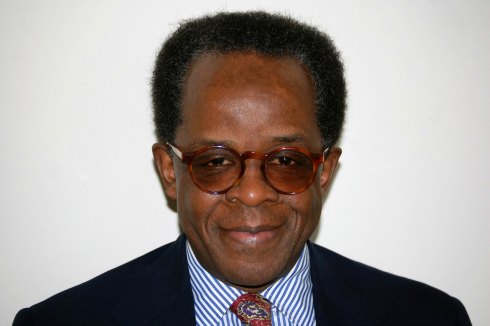
Within a matter of days late last month, four controversies erupted that acutely underscore the crux of Black Americans continuing challenge in this land.
In one, Emory University President James W. Wagner seemed to suggest that the bargaining among the delegates at the Constitutional Convention that produced the infamous three-fifths clause of the Constitution was a model of the value of compromise.
In the second, the February 21st Bloomberg Businessweek magazine cover had a drawing, above the title, “The Great American Housing Rebound,” consisting of caricatures of grinning Black and Hispanic Americans cavorting in a house stuffed with dollar bills – suggesting that minority homeowners were gaming the mortgage system. Five years ago, conservatives made similar charges in trying to pin most of the blame for the collapse of the nation’s housing bubble on Black and Hispanic borrowers.
The third controversy involved Dov Hikind, a prominent politician in Brooklyn, N.Y. who “corked up” in blackface, sunglasses and a wild Afro wig, as “a Black basketball player,” to celebrate the Jewish festival of Purim. Before the volume of rebukes forced him to make an insincere apology, Hikind claimed that any criticism of his behavior was “political correctness to the absurd.”
Finally, and most importantly, on February 27t the U.S. Supreme Court heard oral arguments in a challenge to the most important provision of the 1965 Voting Rights Act, the foundation of Blacks’ political advancement since the 1960s. The case was brought by officials of Shelby County, Alabama.
There they are: One controversy that recalled the bargain the Founders made to insure the creation of the United States – which also insured that their own fortunes and the economic power of the fledgling nation would be built by continuing to exploit Africans and African Americans as slave labor. Two others which show that profoundly racist views of Blacks and other people of color still grip some individual Whites who should know better. And, last – the, apparently, never-ending effort of some individuals and entities in America to deny Black Americans democracy’s fundamental marker of citizenship: the right to vote.
Of the four, the voting rights case — Shelby County v. Holder – is the most laden with a bitter irony. For one thing, Congress in 2006 re-authorized the Act by a vote of 98-0 in the Senate and 390-33 in the House of Representatives after extensive testimony made it clear that many of the jurisdictions covered by the Act, especially those in the South with long histories of concerted efforts to deny their Black residents access to the ballot in the Jim Crow decades, were still using such tactics as denying petitions for early voting, or reducing the hours for early voting, or moving polling stations to locations likely to reduce Blacks’ turnout, and so on.
For another, just four years ago, the Supreme Court turned back a challenge to the Act in a case from Texas.
But in that case the justices sidestepped ruling whether the Act’s key provision – its Section 5 clause – was constitutional. That clause requires jurisdictions covered by the Act to get permission from the Justice Department or a special federal court before changing voting procedures.
Now, many analysts think the court’s conservative majority will strike it down.
Certainly, Justice Antonin Scalia made it clear that is his intent. During the oral arguments, he called the Act a “racial entitlement” program and dismissed the overwhelming 2006 Congressional vote to renew it as racial pandering. It’s a point of view that a century and a half ago formed the foundation of the racist attack to destroy Reconstruction.
There’s another bitter irony to the Shelby case. The debate in the court comes amid a continuing blizzard of laws and regulations in at least 38 states since President Obama’s 2008 election to try to suppress the vote of Blacks and other Democratic-leaning voting blocs. Those efforts, widely publicized and attacked by civil rights and other groups, had just the opposite effect on Election Day 2012. They produced record-breaking turnouts of Black, Hispanic and Asian-American voters that signaled a deeper maturation of these groups’ electoral power – and the growing peril shadowing the Republican Party’s ability to contest future presidential elections.
That’s the broader framework encompassing the Shelby County case. It continues the historical pattern of America’s struggle over race and the meaning of democracy. Every “proof” Black Americans forge that shows they, too, can claim the “unalienable rights” the Constitution declared belong to all human beings has always provoked a fierce reaction from those Whites who’ve staked their status and identity on excluding them.
Yes, the United States is a long way from the evil bargain James W. Wagner foolishly cited as an example of a “good” compromise. But we’re also a long way from the racial Promised Land some people foolishly think is just around the corner.
Lee A. Daniels is a longtime journalist based in New York City. His most recent book is Last Chance: The Political Threat to Black America.
